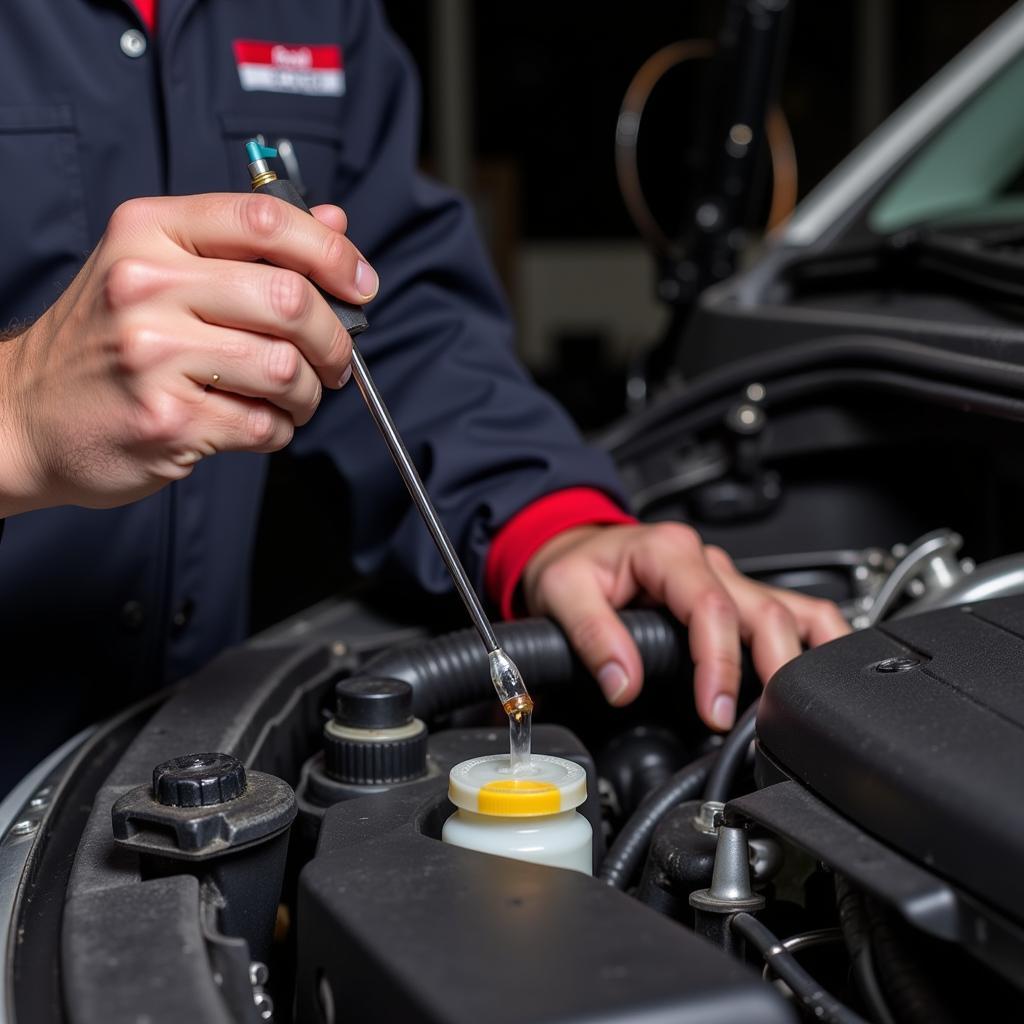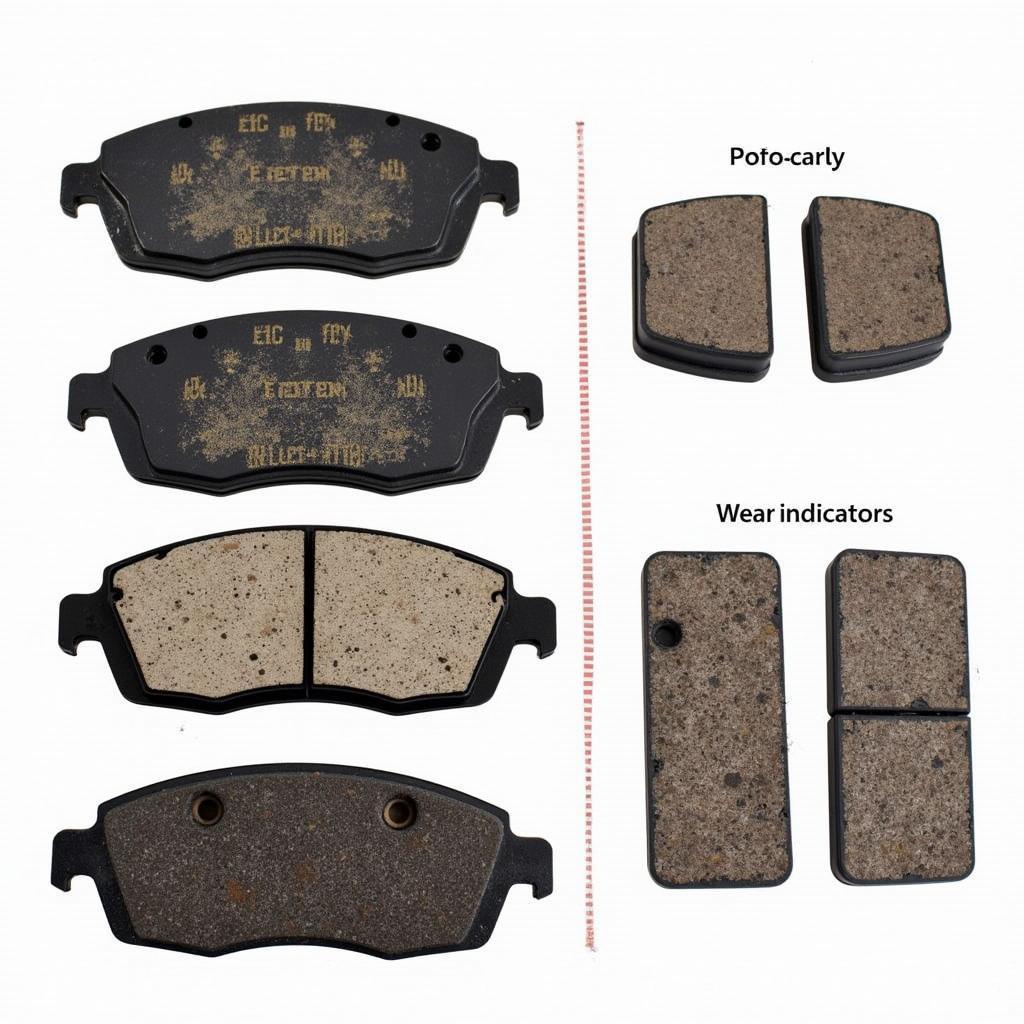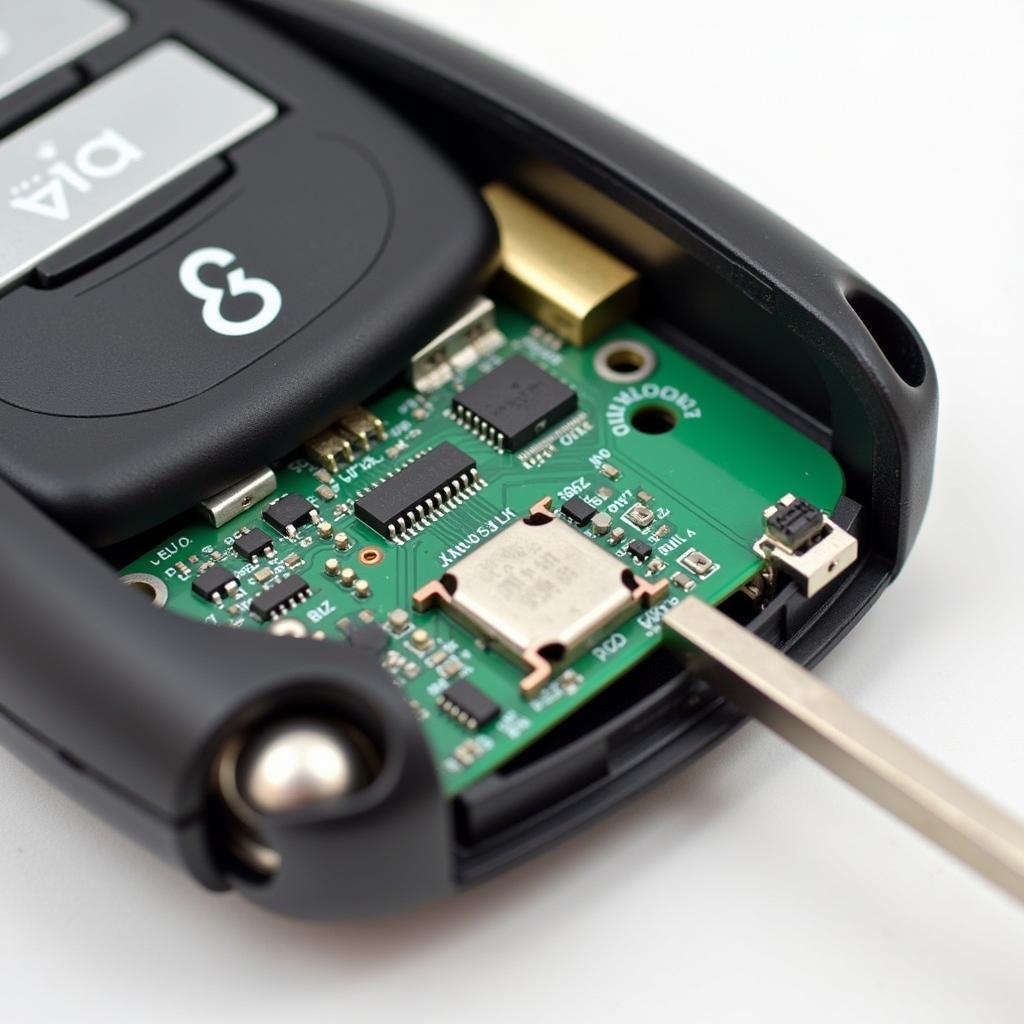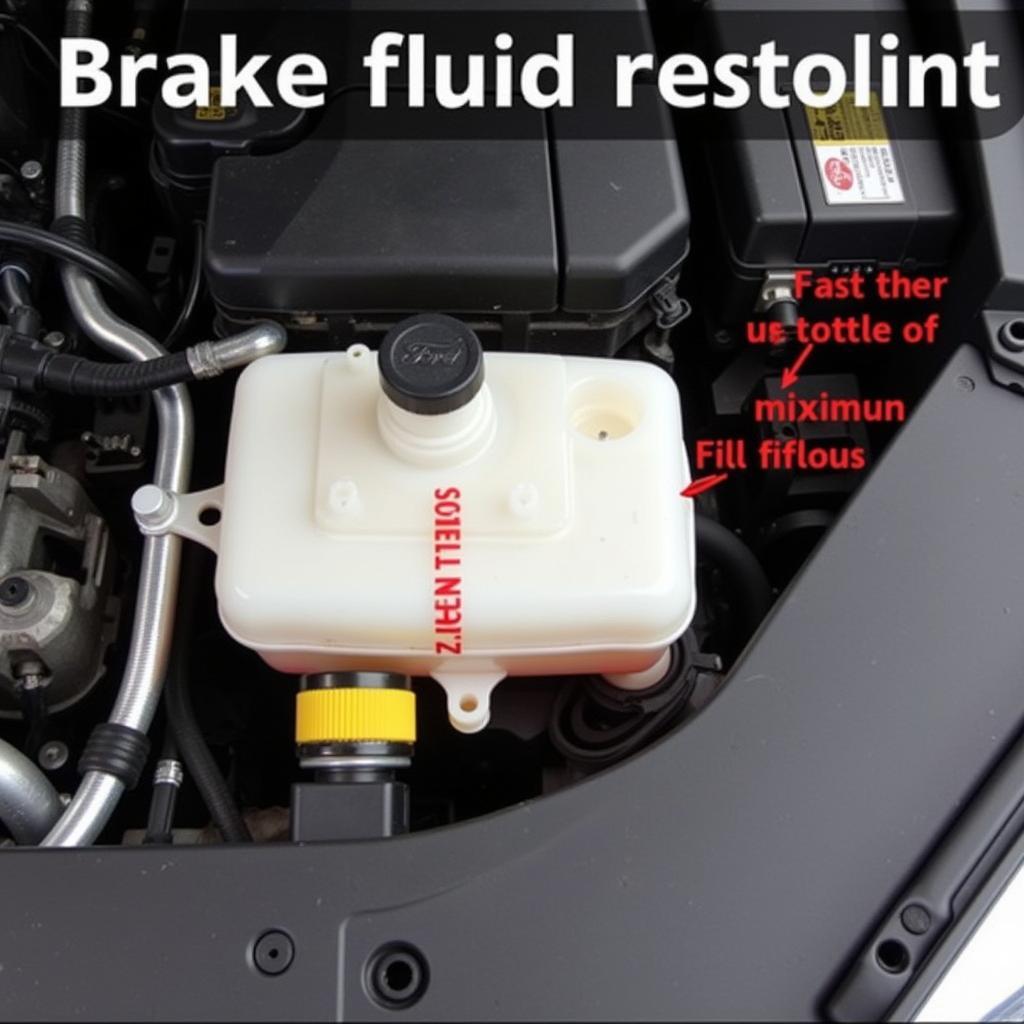A brake light warning on your 2013 Ford Escape dashboard is a clear sign that something isn’t right with your braking system. Ignoring this warning could lead to dangerous situations on the road. This article will delve into the common causes behind this warning light and provide possible solutions to help you get back on the road safely.
Understanding Your Ford Escape’s Brake Warning System
Before we dive into the causes, it’s crucial to understand how your Ford Escape’s brake warning system works. The system comprises several components working together to ensure your safety:
- Brake Pedal Switch: This switch, located above the brake pedal arm, signals the brake lights to illuminate when you press the pedal.
- Brake Light Bulbs: These bulbs are responsible for alerting other drivers that you’re slowing down or stopping.
- Brake Fluid: This hydraulic fluid transmits the force from your foot on the brake pedal to the wheels, slowing or stopping your vehicle.
- Brake Sensors: Your Escape is equipped with sensors that monitor brake fluid levels and brake pad wear.
When any of these components malfunction, the brake warning light on your dashboard will illuminate, prompting you to investigate the issue.
Common Causes of a 2013 Ford Escape Brake Light Warning
Several factors could trigger the brake light warning on your 2013 Ford Escape. Here are some of the most common culprits:
1. Burnt Out Brake Light Bulbs
One of the most frequent and straightforward reasons for a brake light warning is a burnt-out bulb. Over time, the filament in these bulbs can wear out, causing them to fail.
2. Faulty Brake Light Switch
As mentioned earlier, the brake light switch plays a critical role in signaling the lights when you apply the brakes. If this switch malfunctions due to wear and tear, it can cause the brake lights to stay on constantly, flicker intermittently, or fail to illuminate altogether.
3. Low Brake Fluid Level
Brake fluid is the lifeblood of your braking system. A low fluid level could indicate a leak in the system, which can significantly reduce braking performance and potentially lead to brake failure.
 Mechanic Checking Brake Fluid
Mechanic Checking Brake Fluid
4. Worn Brake Pads
Your Ford Escape’s brake pads are equipped with wear indicators designed to alert you when the pads are nearing the end of their lifespan. When the pads wear down to a certain point, these indicators will make contact with the brake rotor, causing a high-pitched squealing sound and triggering the brake warning light.
 Worn Brake Pads Next to New Brake Pads
Worn Brake Pads Next to New Brake Pads
5. Electrical Issues
While less common, electrical issues, such as a blown fuse, a short circuit, or a faulty wiring harness, can also trigger the brake light warning. These issues can disrupt the signal between the brake pedal switch and the brake lights, leading to malfunctions.
Troubleshooting Your 2013 Ford Escape Brake Light Warning
Now that you’re familiar with the common causes let’s discuss how to troubleshoot the problem:
- Check the Brake Light Bulbs: Begin with the simplest solution. Inspect all your brake light bulbs for any signs of burning or damage. If you find a burnt-out bulb, replace it with a new one of the same type and wattage.
- Inspect the Brake Fluid Level: Locate the brake fluid reservoir in your engine bay and check the fluid level. If the level is low, add the recommended brake fluid for your 2013 Ford Escape. However, simply adding fluid won’t fix the problem if you have a leak. It’s crucial to have a mechanic inspect your braking system for leaks and address them promptly.
- Listen for Unusual Noises: Pay attention to any unusual noises coming from your brakes, such as grinding or squealing, when you apply the brakes. These sounds often indicate worn brake pads, which require immediate attention.
- Consider Remote Diagnostics: For more complex electrical issues or if you’re unable to pinpoint the problem yourself, consider seeking professional help. Some companies specialize in remote diagnostics and programming for vehicles like your Ford Escape. They can connect to your car’s computer system remotely, diagnose the issue, and even provide software updates or programming solutions. This can be a convenient option for resolving electronic glitches or software-related problems.
When to Seek Professional Help
While some causes of a brake light warning can be resolved with basic troubleshooting, it’s crucial to remember that your brakes are a critical safety system. If you’re unsure about any aspect of inspecting or repairing your brakes, it’s best to err on the side of caution and consult a qualified mechanic. They have the expertise and equipment to diagnose and fix the issue safely and effectively.
Conclusion
Addressing a brake light warning on your 2013 Ford Escape should never be ignored. By understanding the potential causes and following the troubleshooting tips outlined in this article, you can take the necessary steps to ensure your safety and that of your passengers. Remember, your brakes are one of the most critical safety features in your vehicle. Don’t hesitate to seek professional assistance if you need help diagnosing or repairing your brake system. Safe driving!


